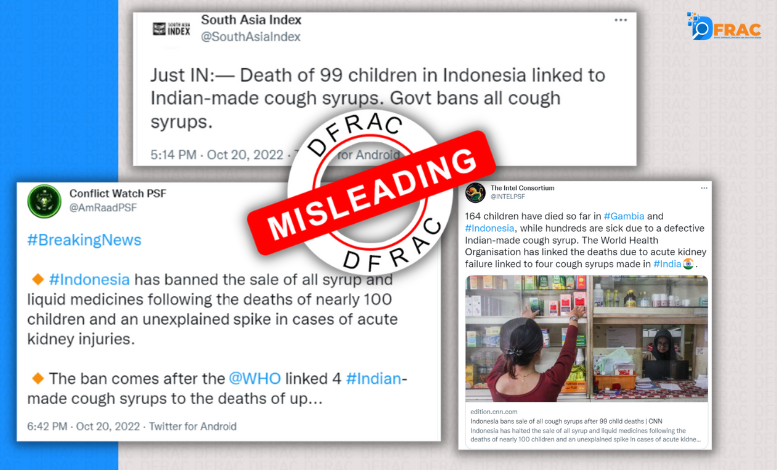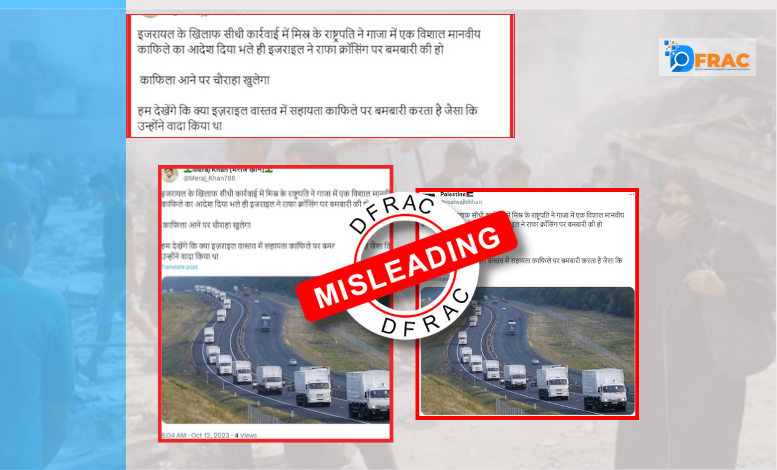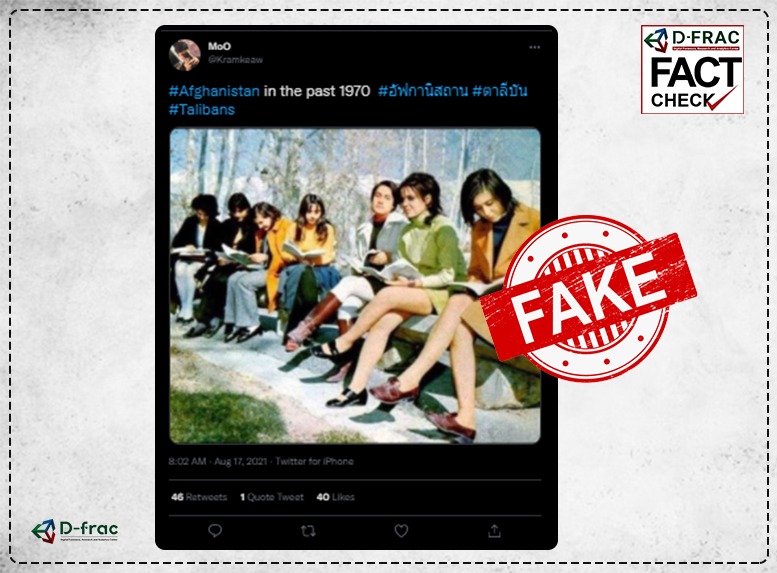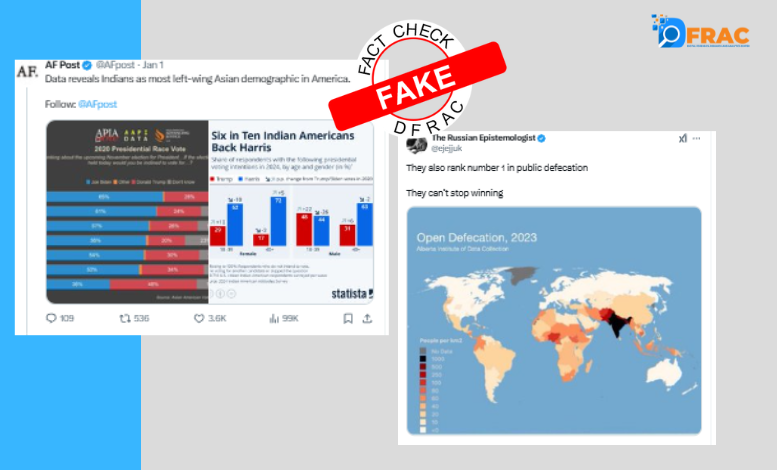Recently a picture is getting viral on social media sites regarding the death of 99 children in Indonesia and the incident is linked to Indian- made cough syrups.
South Asia Index, an account on Twitter, shared the same claim with the caption: “Just IN:- Death of 99 children in Indonesia linked to Indian- made cough syrups. Govt bans all cough syrups.”
Source: Twitter
Earlier, South Asia Index has also shared much misleading news which is covered by DFRAC-
1-Did FATF has removed Pakistan from the Grey list?
2-Is Pakistani crossing ranked 67th in the world happiness report 2022?
Some Pakistani think tanks too came forward and shared the same news, linking this incident of Indonesia with India. Conflict Watch PSF and The Intel Consortium, which are the analytics division and O&S Directorate accounts respectively of the Pakistani think tank- Pakistan Strategic Forum (@ForumStrategic) tweeted with the same claim. We did a complete analysis report on Pakistan Strategic Forum, which can be read here.
Source: Twitter
Source: Twitter
Meanwhile, many other social media users are sharing a similar claim-
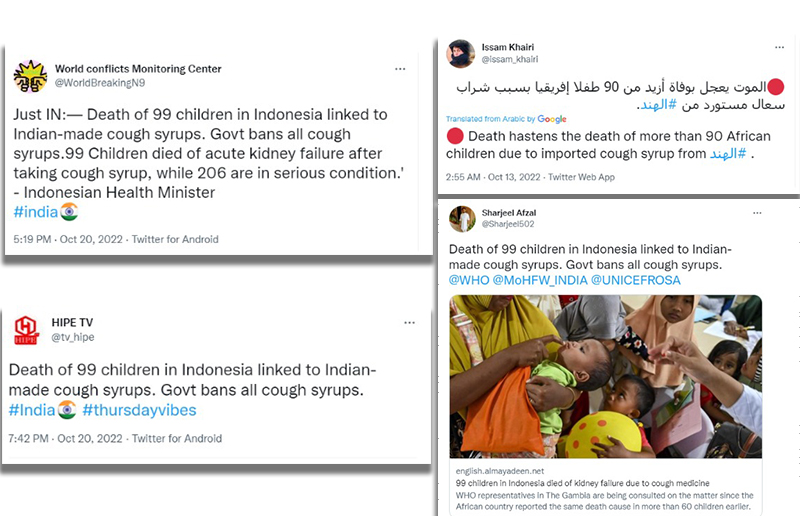
Source: Facebook
Fact check:
To analyze the originality of the viral claim the team of DFRAC searched about the death of 99 children in Indonesia on google. The team found that many media houses covered this news. We found an article on Slashdot.
The article described- “Just a week after a cough syrup in the Gambia was linked to the death of 70 children. Indonesia told that some syrup medicine was found to contain ingredients linked to acute kidney injuries which killed 99 children in 2022.”
Source: Slashdot
We narrowed our search results finding how Indian-made cough syrups are linked with deaths in Indonesia. We found the report of BBC where they mentioned that it is not clear whether the medicines were imported or locally produced.
Source: BBC Report
Moreover, Health Minister of Indonesia, Budi Gunadi Sadikin was also cited by the media as saying some of those syrups were produced locally. The statement of the minister is also mentioned in the reports of Reuters, Dawn, and Indonesia Local.
Source: Reuters Report
After the World Health Organization linked Indian- made cough syrup to acute kidney failure, leading to the death of 70 children in West Africa, Indian authorities shut down a factory near Delhi where the medicines were made. The cause behind it is the excessive use of diethylene glycol and ethylene glycol, chemicals which often used for industrial use.
Source: Goats and soda
Meanwhile, Indonesian news agency ANTARA said that the Indonesian Food and Drug Supervisory Agency (BPOM) confirmed that four Paracetamol-containing cough syrup products suspected of the deaths of dozens of children in Gambia, West Africa, were not registered in Indonesia.
Source: Antara News
At the same time, we searched for the Indonesian food and drug supervisory agency (BPOM) post on social media sites regarding Indian- cough syrup and we found an Instagram page of Bpom named Bpom Mataram in which they did a post about the medicine syrup.
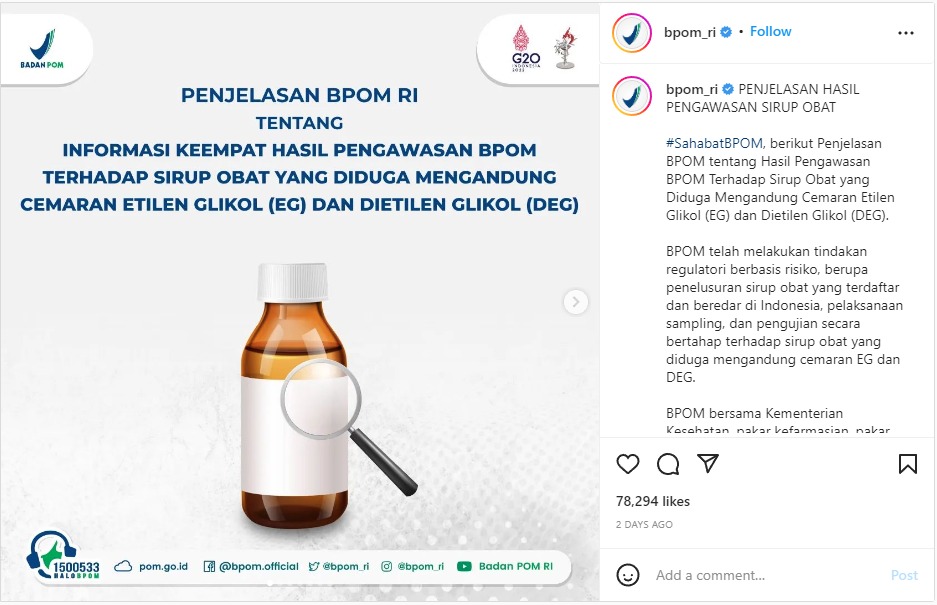
Source: Instagram
The post caption: “Here’s BPOM’s Explanation of Medicinal Syrup For Children In Gambia, Africa Contaminated With Diethylene Glycol And Ethylene Glycol”
Based on BPOM’s search, the four medicinal syrup products for children contaminated with ethylene glycol and ethylene glycol in the Gambia are not registered in Indonesia, and to date products from the manufacturer Maiden Pharmaceutical Ltd, India not registered with BPOM.” (English Translation)
Conclusion:
It is clear from the verification of DFRAC that the viral claim done by social media users and Pakistani think tanks regarding 99 children deaths in Indonesia linked with Indian cough syrup is Misleading.
It is clearly mentioned by Indonesia (BPOM) that the two chemicals diethylene glycol and ethylene glycol were not registered in Indonesia and were used in West Africa. Moreover, it is yet not confirmed whether the syrup was imported or produced locally.
Claim Reviewed: 99 children pass away by Indian- made cough syrups in Indonesia
Claimed By: Social Media Users
Fact Check: Misleading


